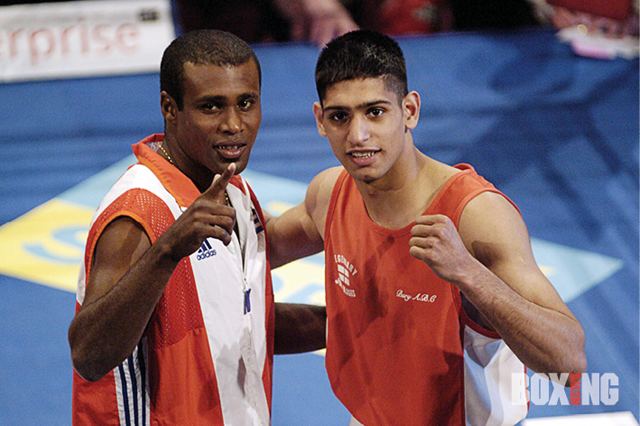
By Mayli Estevez (El Toque)
HAVANA TIMES – Not too many years ago, Cuba was a factory producing athletes who brought home medals and honors in international competitions. After each victory, reporters asked the athlete: “And who do you dedicate this medal to?”
Always the same question, repeated ad nauseum. Both the athlete and the spectators knew the answer by heart: “to the Commander in Chief.” The family was relegated to second place, because you had to babble that memorized phrase, repeated since the earliest school competitions.
The question and the response formed the introduction and the conclusion to all the events. If by some chance the athlete forgot who they were dedicating the medal to, the reporter of the moment took it upon themselves to insist, until they heard the name and the military rank.
Although now the number of medals is scant, that dedication is still heard: “to the president.” It’s said almost scornfully, as if the athlete was thinking: “I better say it, before I forget it.”
Those who previously dedicated their medals to the “Comandante,” are now desperately seeking someone who will pay in dollars for that same medal.
This past week, there was a story regarding boxer Mario Kindelan that captured the attention of the social networks. Kindelan had twice been an Olympic champion – in 2000 in Sidney, and in 2004 in Athens. The Olympic champ revealed that he had left for Bahrain through personal arrangements at the beginning of 2023, in search of some economic betterment for himself and his family.
“I had barely left Cuba when the Inder [Cuba’s National Institute for Sports, Physical Education and Recreation] took back the grubby pension de 7,400 pesos [currently US $30] for my Olympic gold medals. Apparently, I stopped being a two-time Olympic champion. (…) It seems the Cuban Executive Board wants Mario Kindelan to die under a bridge in the street, with no possibility of living like a human being,” he told reporter Julita Osendi last April.
Kindelan also criticized the Cuban authorities: “Those who are in charge, the head of State and the second in command, either have no idea what goes on in sports, or don’t care.”
A few days ago, Amir Khan, Kindelan’s British rival at the Athens 2004 Olympics, told the TalkSport media company that Kindelan tried to sell him that gold medal for US $5,000. Khan refused and gave him the money, asking him to never sell the prize.
“It pained me when he told me he didn’t have any money, so I gave him some cash. Then he asked: ‘Do you want to buy my gold medal?’ At first, I thought he was joking, but he then said: ‘I really want to sell you my gold medal to build a house for my mother. The family is very poor, and I want to build a house for her,’” Khan stated.

Unfortunately, Kindelan isn’t the only Cuban to put an Olympic medal up for sale, nor will he be the last athlete to do so. A few months ago, the gold prize won by Cuban boxer Roniel Iglesias in the 2020 Tokyo Olympics became the most expensive item sold at an auction.
The medal was offered by the RR Auction House of Boston, which estimated its value as at least $50,000 dollars. However, the buyer paid US $83,000 to acquire it. It’s unknown if Iglesias himself had put up the medal for auction, or if he had previously sold it to someone who did.
That same day, the silver award won by boxer Carlos Banteux in the welterweight division of the 2008 Beijing Games was also sold, but for US $25,000, the tenth best price obtained from the Olympic objects offered at that auction.
RR Auction has also auctioned the gold medals of long jump athlete Ivan Pedroso and shooter Leuris Pupo, both of them Cuban. Pupo’s was won in London in 2012, and sold for US $73,205; Pedroso’s, won in Sidney in 2000, sold for US $71,335. Cuban wrestlers Yasmany Lugo and Juan Luis Maren also put their silver medals up for auction. Maren, whose career has earned him 2 silver medals and a bronze, sold one for US $11,251, the ninth highest price among the auction items that sold that day. Lugo’s didn’t sell.
In 2016, discus thrower Yarelis Barrios was stripped of the silver medal she won in the Beijing Olympics for doping, after she failed a test. The International Olympic Committee asked her to return her award, but Barrios responded that she no longer possessed the medal, because she had put it up for sale on the internet site eBay, where a user purchased it for US $11,600 dollars. The company later confirmed that the transaction had taken place, and that Barrios’ silver medal had indeed changed hands for that sum.
The list keeps growing. The cases I mentioned are the most visible and the ones that went viral. However, there may be others who traded their awards for food or sold them in Cuban pesos to temper the misery that some days and months can be life in Cuba.
These days, then, we can ask our athletes a different question: Who are you going to sell this medal to?
Read more from Cuba here on Havana Times




